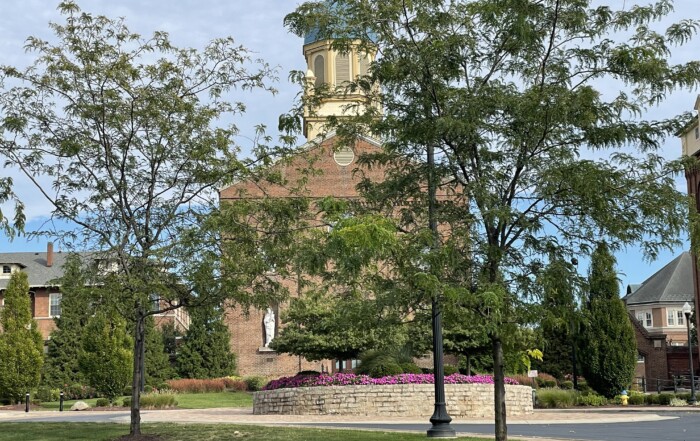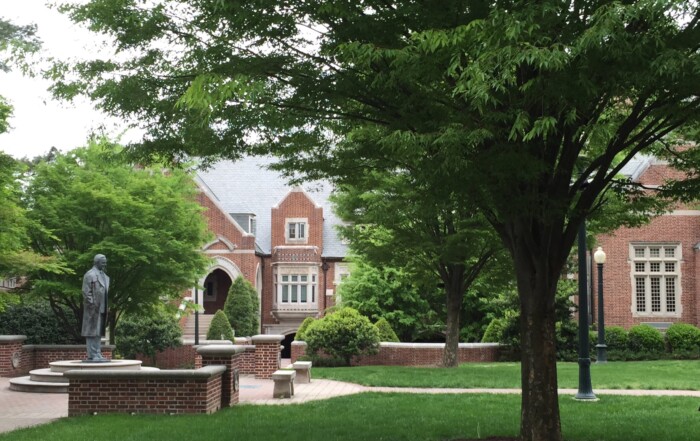College Admissions Tips and Guidance
Is a Women’s College Right for You?

Explore Our Articles
Recent Posts
Popular Categories
Get In Touch
On Social
By Phone or Text
(617) 734-3700
By Mail or Email
1678 Beacon Street
Brookline, MA 02445
By Form
Educational Advocates
Our objective is to guide the family in finding options where the student will not only get admitted, but thrive and find success once on campus.
Is a Women’s College Right for You?
One often-overlooked option for college-bound women is a women’s college. While some young people may think such schools can be isolated from men and the “real world,” they actually can provide some of the finest undergraduate experiences as well as superior preparation for life after college.

Female college students enjoy a beautiful day in the sun on their campus at Scripps College.
Many of this country’s women’s colleges are associated with coed institutions, therefore addressing the concern about isolation and allowing for cross-enrollment among several schools. For instance, Bryn Mawr College in the greater Philadelphia area is affiliated with nearby schools including Swarthmore and Haverford colleges, as well as the University of Pennsylvania. In Southern California, Scripps College is situated right next to the four other Claremont Colleges, all of which are coeducational. A five-college consortium in Western Massachusetts includes women’s colleges Smith and Mount Holyoke along with Amherst, Hampshire, and the University of Massachusetts.
If you are wondering why women’s colleges still exist, the answer is that they work. Since they are institutions where the focus is on women, they tend to be supportive and conducive to students’ intellectual and personal growth. Women’s colleges are uniquely able to serve women since every resource at these colleges—from the classes to the housing to the career guidance—is geared toward women. Hector Martinez, dean of college guidance at The Webb Schools in Claremont, CA, agrees that a lot of remarkable things happen when females work together.
“There is a sense of belonging in these all-female communities that is transforming these smart girls into women ready for life’s challenges,” says Mr. Martinez.
Opportunities For Leadership

Mount Holyoke College students enjoy the East Coast’s autumn foliage as well as the many mentoring opportunities an all women’s college offers.
Indeed, something inspiring happens at women’s colleges where a woman holds every student leadership position. This means abundant opportunities for women to step into leadership roles or hone their leadership skills. With so many opportunities to lead and be led by dynamic women, confidence can blossom. If you visit a women’s college, you may very well come away with the impression that the students there are unusually confident and competent.
In addition to the leadership opportunities available at women’s colleges, such colleges also provide abundant mentors and role models for young women. Often a greater than average percentage of staff and faculty at women’s colleges are female. Women’s colleges also tend to have extensive academic offerings, programming, and speakers relevant to women’s issues. “Being at a women’s college is important to me as a feminist. I feel empowered and more able to express myself in the supportive atmosphere,” shares former Bryn Mawr student, Julia Tanenbaum.
More Likely To Earn Advanced Degrees
How does a women’s college education impact its students? Students at women’s colleges tend to have higher graduation rates and higher levels of satisfaction with their education than their counterparts at coed institutions. Statistics also show that women’s college graduates are twice as likely to earn an MD or PhD than female graduates of coed institutions, and they are disproportionately represented in leadership positions in business and government.
Do you have to be a feminist to be happy at a women’s college? While students who choose a women’s college tend to feel strongly about women’s equality and women’s rights, the common denominator tends to be that those who seek a women’s college want to live and learn in a supportive environment that will help them grow in confidence, knowledge, and leadership skills.
Kristina Brooks, PhD—former assistant director of admission at Scripps College, sees the environment at women’s colleges as being qualitatively different from that at coed institutions.
“I believe the sense of support that pervades the women’s college classroom and campus enables young women to learn to trust their own opinions, to grow in their ability to question and lead, and to form collaborative and mentoring relationships with their peers, professors, and campus employers in a uniquely empowering way,” says Dr. Brooks.
Think about adding a women’s college to your list of potential colleges, and more importantly, visit one or more to see for yourself whether this option might be right for you.
Visit here to learn more about women’s colleges.








